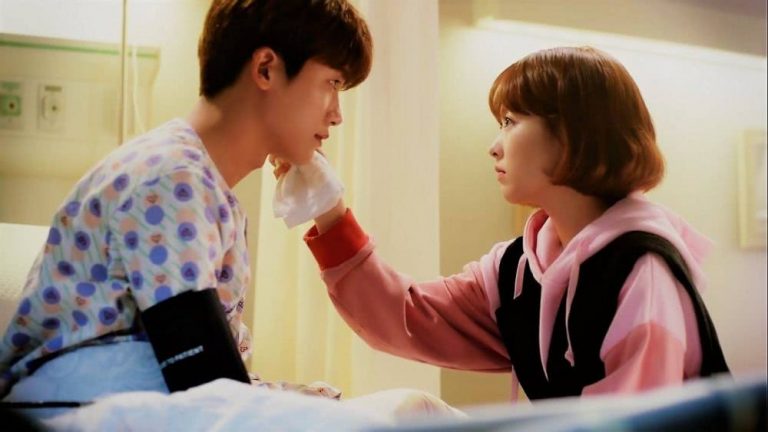2017 was very much the year of the woman in film and television – whether she was in front of the camera, or behind it. Doctor Who finally saw the TARDIS occupied by its first openly gay companion (who also so happened to be a woman of colour), and its first female Doctor. Wonder Woman secured its place as the highest grossing film of the year, whilst its director, Patty Jenkins, became the highest grossing female director ever. And Girls Trip, starring Jada Pinkett Smith and Queen Latifah, also ranked as the year’s highest grossing comedy film.
But the rise of the empowered woman in the productions of 2017 was not a phenomenon unique to English-speaking countries. In South Korea, one of the nation’s most successful television shows of the year was Strong Girl Bong-soon, produced by Drama House and written by Baek Mi-kyoung and directed by Lee Hyung-min. The success of the series also led to its acquisition by Netflix, and it is now available for streaming on Netflix Australia.
https://www.youtube.com/watch?v=xKkpYhF2r5M
The series centers on the lead heroine, Do Bong-soon (played by the captivating Park bo-Young), a 27-year-old woman who possesses supernatural strength – a hereditary gift passed down through the female line of her family at birth. But it’s a superpower that comes with a single caveat – her strength can only be used to aid the innocent and vulnerable, and if used for selfish, abusive or nefarious purposes, will leave her forever.
The series follows Bong-soon’s struggle to come to terms with her gift and her responsibility to protect others, while working as the personal bodyguard for Ahn Min-hyuk, the CEO of Ainsoft gaming company (played by Park Hyung-sik) and trying to catch a deranged murderer and abductor with her childhood friend and police officer, Guk-doo (played by Kim Ji-soo).
Strong Girl Bong-soon is, above all else, a feminist series concerned with power in its various manifestations – whether it be institutional power, psychological power or pure physical power. The storyline exposes the repercussions of society’s corrupt use of power through a unique blend of supernatural, dramatic and farcical characters and plotlines.
In particular, Strong Girl Bong-soon focuses most explicitly on the power of toxic masculinity in patriarchal societies, and the effect of this on women. Bong-soon is confronted on a daily basis with instances of women being abused – from lecherous gropers on public transport, to men exposing themselves to schoolgirls and kidnapping women. Although Bong-Soon is gifted with supernatural powers, the storyline does not have her combatting supernatural villains. Instead, her role is to protect society from every day evils – in this show, the villains are men who abuse women.
The success of Strong Girl Bong-soon is representative not only of women’s changing roles and representations in pop culture, but it’s also emblematic of a growing global movement seeking to end violence and harassment against women.
The CEO of Drama House, Joon Suh Park, notes that the success of Strong Girl Bong-soon lies in its storyline. “These days are a time of change for women’s rights worldwide, including Korea,” says Joon Suh Park.
“The mindset that men are stronger and therefore superior to women has been a setback. We created a satirical comedy through the character of Bong-soon, who is a seemingly weak and common girl who has within her the kind of power that outperforms and even protects men around her.”
A study released by the Korean Institute of Criminology last year revealed that 79.7 per cent of male participants surveyed had either psychologically or physically abused their girlfriends while dating.
The importance of a series like this one should not be downplayed. In 2016, the World Economic Forum’s Global Gender Gap Index ranked South Korea 116 out of 144 countries, due to the nation’s ongoing issues with gender inequality.
Indeed, a study released by the Korean Institute of Criminology last year revealed that 79.7 per cent of male participants surveyed had either psychologically or physically abused their girlfriends while dating. “For many women, [the scenes in the series] would resonate deeply as they relate to their own similar experiences in daily life,” says Joon Suh Park.
“It’s true we wanted women to have a sense of satisfaction through Bong-soon’s actions. We hope they enjoyed the character. But ultimately, we were aiming to send a message to everyone about general human compassion and true strength.”
Power is a positive privilege insofar as it is used to assist those who are powerless.
That said, for all its triumphs – and there are many – Strong Girl Bong-soon is let down by its reliance on LGBT+ characters and stereotypes for comic relief. The series shifts between depicting homosexuality as either humorous, or problematic. In one episode, rumours about Min-hyuk being gay are enough to potentially stop him from becoming the chairman of his father’s company, and this reliance on an out-dated, but unfortunately still overused trope in television script writing is disappointing considering the show’s central themes and messaging.
Nonetheless, Strong Girl Bong-soon does very much pack a punch with its cautionary tale: power is a positive privilege insofar as it is used to assist those who are powerless. Once that power is abused, there’s no going back.
It’s a series that, by flipping many of television’s gender norms and granting its leading heroine such agency, is inspiring both national and international audiences. As Joon Suh Park emphasises, “we all have an inner Bong-Soon within us. I hope you all put that power in good use, like Bong-Soon did in the show.”
Strong Girl Bong-soon is available for streaming on Netflix Australia now. Click here to read about how Alynda Segarra of Hurray for the Riff Raff is making waves for women of colour in New York City.

































